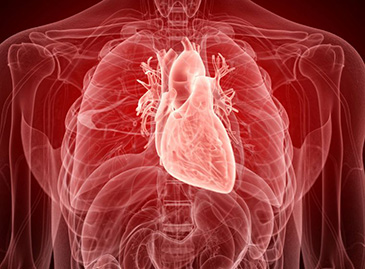Pacemaker For Heart in Turkey
A pacemaker is a small device implanted under the skin, usually near the collarbone, to help control abnormal heart rhythms.
We are with you throughout the entire process
You will find some useful information that will help you prepare the necessary organization to prevent all problems and make the necessary arrangements to ensure that everything goes smoothly during your stay in Turkey.
After our with doctor answers all your questions, doctor will explain to you how the operation process will proceed.
You will have a preliminary meeting with the doctor and team we work with before the operation.
Read the document we sent you before coming to Istanbul and be sure to follow the rules.
During the recovery process, our teams will call you, ask about your condition and ask for photos.

FAQ for Pacemaker For Heart
You can find detailed information about the operation and organization you will have before coming to Turkey. You can contact your sales representative for any other questions you may have.
- Individuals with heart rhythm disorders like bradycardia, heart block, or arrhythmias, especially those with symptoms like dizziness or fainting.
- A small incision is made near the collarbone to place leads in the heart and implant the generator under the skin.
- Yes, it’s safe with minimal risks, thanks to advanced technology and skilled medical professionals.
- Yes, modern pacemakers are mostly mri compatible (friendly) and can withstand about 1-3 Tesla units from an MRI scan.
- Pacemaker surgery in Turkey is cost-effective, offering high-quality care at competitive rates, making it a popular choice for international patients.
- The procedure generally takes a few hours and is minimally invasive, facilitating quick recovery.
Authorized by the Ministry of Health and Tourism in Turkey
One standard medical procedure essential to treating heart rhythm abnormalities is pacemaker implantation. This small device, implanted under the skin, helps regulate abnormal heart rhythms, improving the quality of life for individuals with heart conditions. In this guide, we'll explore what pacemakers are, why a pacemaker is necessary, how the procedure is performed, and the costs of pacemaker implantation, particularly in Turkey. We’ll also touch on how Istanbul Med Assist offers a trusted solution for those considering this life-changing procedure.
What is a Pacemaker?
A pacemaker is a tiny, battery-operated device inserted beneath the skin to help regulate the heart's rhythm. The device consists of:
- Generator: Contains the battery and electronic circuits.
- Leads: The generator and the heart are connected by insulated wires that send electrical impulses to control the heartbeat.
The pacemaker is designed to correct heart rhythms that are too slow (bradycardia) or irregular, ensuring that the heart pumps blood efficiently.
Why is a Pacemaker Needed?
A pacemaker is typically recommended for people with heart conditions that interfere with the natural rhythm of the heart. These include:
- Bradycardia: A slow-paced heartbeat that may result in exhaustion, lightheadedness, or fainting.
- Heart Block: A condition where electrical signals in the heart are delayed or blocked, leading to irregular heartbeats.
- Arrhythmias: Abnormal heart rhythms that can affect the heart’s ability to pump blood effectively.
For patients with these conditions, a pacemaker helps by sending electrical signals to the heart to restore a normal rhythm, reducing symptoms and preventing complications like heart failure or stroke.
How is a Pacemaker Implanted?
The pacemaker implantation process is straightforward and minimally invasive. It generally takes 1-2 hours to complete. Here's how the procedure typically goes:
- Preparation: The patient is given a sedative and local anesthesia to numb the area.
- Incision: A small incision is made near the collarbone, where the pacemaker will be placed.
- Lead Placement: Leads are threaded through blood vessels and positioned in the heart’s chambers.
- Generator Placement: The generator is implanted under the skin near the collarbone.
- Testing: The pacemaker is tested to ensure proper function.
- Closure: Following the closure of the incision, the patient is sent to recovery.
Benefits of a Pacemaker
A pacemaker offers numerous benefits for patients suffering from heart rhythm disorders:
- Regulated Heartbeat: Ensures the heart beats correctly, reducing symptoms like exhaustion, lightheadedness, and shortness of breath.
- Improved Quality of Life: Patients experience fewer limitations in daily activities, with a reduced risk of fainting or heart failure.
- Long-Term Health: Pacemakers lower the chance of more serious side effects including heart failure and stroke by controlling the heart's rhythm.
Risks and Considerations
Although a pacemaker implantation is generally safe, there are some concerns involved, including:
- Infection at the incision site.
- Bleeding during or after surgery.
- Battery issues, requiring future pacemaker replacements.
However, these risks are rare, and advancements in pacemaker technology have made the procedure safer and more effective than ever.
Pacemaker Costs in Turkey
One of the significant factors many people consider when opting for a pacemaker is the cost. Several variables, including the type of pacemaker being used, the case's uniqueness, and the hospital doing the implantation, might affect the cost.
In Turkey, pacemaker costs less than in many Western countries, offering patients an affordable solution without compromising quality. For those looking for excellent treatment at a more affordable cost, this makes Turkey a popular destination for medical tourism.
At Istanbul Med Assist, in addition to receiving outstanding treatment from skilled cardiac specialists, patients can take advantage of lower health care expenses than in other countries.
Recovery After Pacemaker Implantation
Recovery after pacemaker implantation is usually quick. Most patients can return home the same day or after a hospital stay. Here's what you can expect during recovery:
- Immediate Recovery: Patients are monitored for a few hours post-procedure to ensure no complications.
- Soreness: Mild pain or discomfort around the incision site is normal, which can be managed with pain relievers.
- Follow-Up Appointments: Frequent follow-up appointments are required to assess the pacemaker's operation and make any adjustments.
- Activity Restrictions: To guarantee a proper recovery, patients must avoid engaging in strenuous exercise and heavy lifting for a few weeks.
Most patients resume normal activities with proper care and follow-up within a few weeks.
Pacemaker Technology: New Advancements
Over the years, pacemaker technology has seen remarkable advancements:
- Wireless Pacemakers: Newer models can be inserted into the heart via a catheter, eliminating wires.
- Leadless Pacemakers: These provide some patients an even less invasive alternative because they don't require leads.
- Biventricular Pacemakers: Utilized to treat heart failure, these devices help synchronize the heart’s chambers to improve pumping efficiency.
- MRI compatible pacemakers: also referred to as MRI friendly pacemakers, are made with non-magnetic materials to ensure safety of the patient and avoid damage to the pacemaker during an MRI scan.
Conclusion
A life-altering procedure for those with heart rhythm abnormalities is pacemaker implantation. It decreases the risk of major problems, enhances quality of life, and facilitates the return to normal heart activity.
For patients considering a pacemaker, Turkey offers quite affordable and high-quality options, such as the advanced MRI compatible pacemakers with Istanbul Med Assist providing excellent care. Istanbul Med Assist guarantees you the best care possible while handling costs, regardless of whether you require a conventional pacemaker or a more advanced one.



